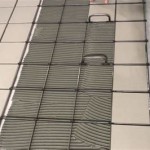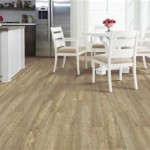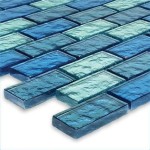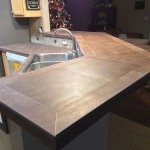Sparkle With Glass Pool Tiles: A Comprehensive Guide
Glass pool tiles represent a premium choice for enhancing the aesthetic appeal and functionality of swimming pools. Their inherent properties, including durability, visual versatility, and resistance to harsh pool chemicals, contribute to their widespread popularity among pool builders, renovators, and homeowners alike. This article delves into the various aspects of glass pool tiles, covering their types, installation, maintenance, and the overall benefits they offer.
Understanding the Properties of Glass Pool Tiles
Glass pool tiles are manufactured using a specific process that involves melting silica sand, soda ash, and other additives at high temperatures. This process results in a material that is impervious to water, resistant to staining, and capable of withstanding the constant exposure to chlorine and other pool chemicals. The non-porous nature of glass tiles also prevents the growth of algae and bacteria, contributing to a cleaner and healthier pool environment. Furthermore, glass tiles are highly durable and resistant to cracking and fading, ensuring a long-lasting and visually appealing pool surface.
The optical properties of glass are crucial to their aesthetic appeal. The way glass reflects and refracts light contributes to the shimmering, vibrant appearance of a pool. This effect is significantly enhanced by sunlight, creating a dynamic visual display that changes throughout the day. Moreover, the reflective nature of glass can contribute to a brighter pool interior, improving visibility and safety, particularly during nighttime swimming.
Various types of glass are used in the production of pool tiles, each offering unique characteristics. Recycled glass tiles are an environmentally conscious option, contributing to sustainable building practices. These tiles are made from post-consumer or post-industrial glass waste, reducing landfill waste and conserving natural resources. Other types of glass used include fused glass, which offers a smooth, seamless finish, and textured glass, which provides added grip and visual interest.
The size and shape of glass pool tiles also play a significant role in the overall design. Mosaic tiles, typically smaller than 2x2 inches, are ideal for intricate patterns and designs. Larger format tiles, such as 6x6 or 12x12 inches, create a more streamlined and contemporary look. The shape of the tiles can also vary, ranging from traditional squares and rectangles to more unconventional shapes like hexagons or circles, offering endless design possibilities.
Installation Techniques for Glass Pool Tiles
Proper installation is paramount to ensuring the longevity and performance of glass pool tiles. The substrate, or the surface beneath the tiles, must be properly prepared to ensure a strong and durable bond. This typically involves cleaning the surface to remove any debris, repairing any cracks or imperfections, and applying a waterproofing membrane to prevent water penetration.
The choice of adhesive is also crucial. A high-quality, polymer-modified thin-set mortar specifically designed for glass tiles is recommended. This type of mortar offers superior adhesion, flexibility, and water resistance. It is also important to choose a mortar color that complements the color of the glass tiles, as the mortar can be visible through the translucent glass.
The application of the mortar should be consistent and even, ensuring full contact between the tile and the substrate. A notched trowel is typically used to create ridges in the mortar, which help to distribute the adhesive evenly and prevent air pockets. The tiles should be pressed firmly into the mortar, ensuring they are level and aligned properly.
Grouting is the final step in the installation process. A high-quality, epoxy grout is recommended for glass pool tiles, as it is highly resistant to water, chemicals, and staining. Epoxy grout is also more durable and less porous than traditional cement-based grout, making it easier to clean and maintain. The grout should be applied carefully, ensuring that all the joints between the tiles are completely filled. Excess grout should be removed promptly to prevent it from hardening on the surface of the tiles.
Expansion joints are an important consideration during installation. These joints allow for the natural expansion and contraction of the pool structure due to changes in temperature and humidity. Without expansion joints, the tiles could crack or become dislodged. The spacing and placement of expansion joints should be determined by a qualified professional based on the size and design of the pool.
Maintaining Glass Pool Tiles for Long-Term Beauty
Proper maintenance is essential to preserving the beauty and functionality of glass pool tiles. Regular cleaning is necessary to remove dirt, debris, and algae growth. A soft brush or sponge and a mild detergent can be used to clean the tiles. Avoid using abrasive cleaners or scouring pads, as these can scratch the surface of the glass.
Maintaining proper water chemistry is also crucial. The pH, alkalinity, and calcium hardness of the pool water should be regularly tested and adjusted as needed. Imbalances in water chemistry can lead to staining, scaling, and corrosion of the tiles and grout. It is also important to maintain proper chlorine levels to prevent algae growth.
Grout maintenance is particularly important. The grout between the tiles is susceptible to staining and discoloration. Regular cleaning with a grout brush and a mild cleaner can help to prevent this. In some cases, it may be necessary to re-seal the grout to protect it from water penetration and staining. If the grout is severely damaged or discolored, it may need to be replaced.
Inspecting the pool regularly for any signs of damage is also recommended. Cracks, chips, or loose tiles should be repaired promptly to prevent further damage. Small repairs can often be done DIY, but larger repairs should be handled by a qualified professional.
Winterizing the pool properly is important in cold climates. This typically involves draining the pool, covering it with a winter cover, and adding antifreeze to the plumbing lines. This helps to protect the pool from damage due to freezing temperatures.
In addition to routine cleaning and maintenance, consider professional pool cleaning services. Professionals possess the tools and expertise to thoroughly clean and inspect the tiles, ensuring optimal appearance and longevity. They can also identify and address potential issues before they escalate into significant problems.
Choosing the right glass pool tiles involves considering various factors, including the pool's design, budget, and personal preferences. Selecting durable, high-quality tiles and implementing proper installation and maintenance practices will ensure a stunning and long-lasting pool that offers years of enjoyment.
The radiant shimmer and visual depth offered by glass pool tiles elevate the aesthetic of any pool. Whether opting for a classic mosaic pattern or a contemporary large-format design, glass tiles bring a touch of elegance and sophistication to the swimming pool experience. The investment in glass pool tiles is an investment in creating a beautiful and inviting oasis for relaxation and recreation.

Glass Pool Tiles Let Your Swimming Shine Bright

The Tile Doctor S Crystal Glass Grout Jewels Make Iridescent Tiles Sparkle

1 Sparkle Glass Noble Tile Supply

Looking For Pool Mosaics Check Out Artistry In At Tile S Of America

Blue And Golden Sparkles Squares Glass Pool Tile Mosaic Backsplash Kitchen Bathroom

1 Sparkle Glass Noble Tile Supply

Blue And Golden Sparkles Squares Glass Pool Tile Mosaic Backsplash Kitchen Bathroom

Sample Fairy Green 2x2 Polished Glass Mosiac Tile

Glass Pool Mosaic Tiles For Swimming And Spas Mineral

Beautiful Swimming Pool Mosaic Tile Ideas Classic Style Glass Patterns For Private China Designs Made In Com
Related Posts








